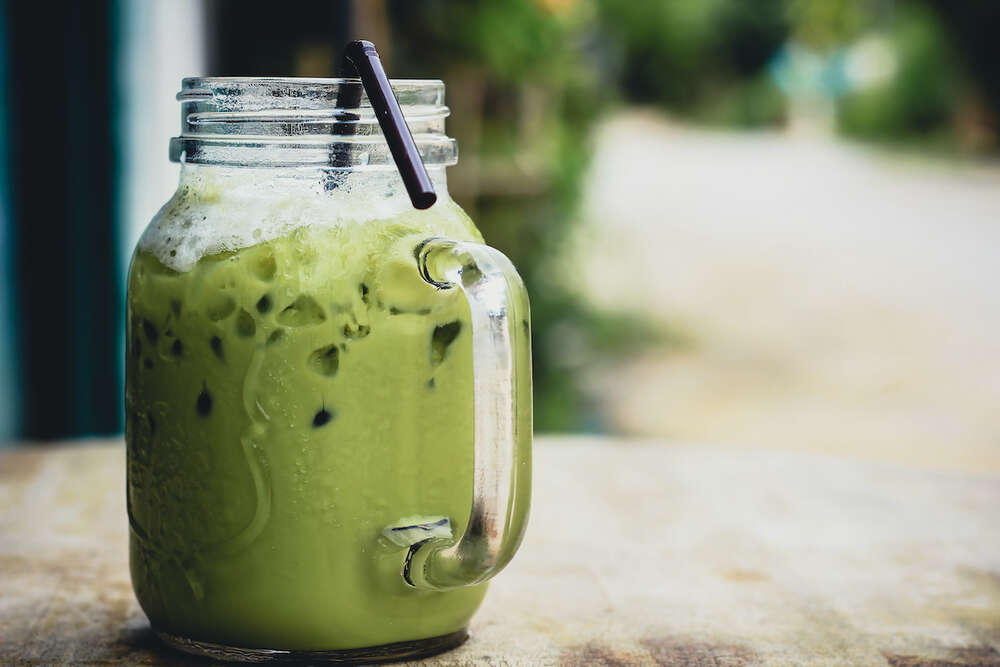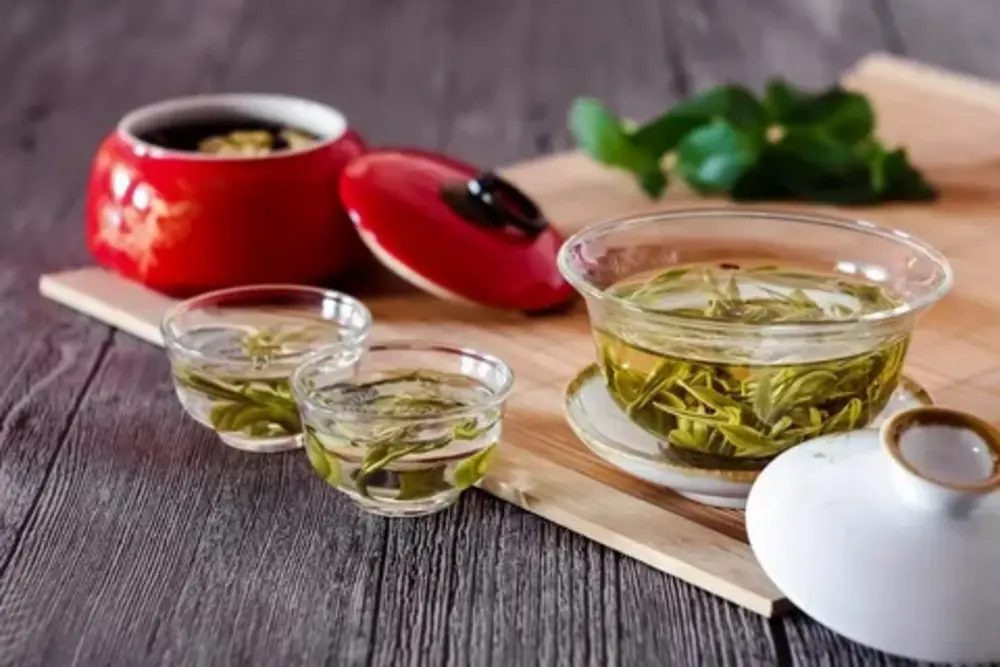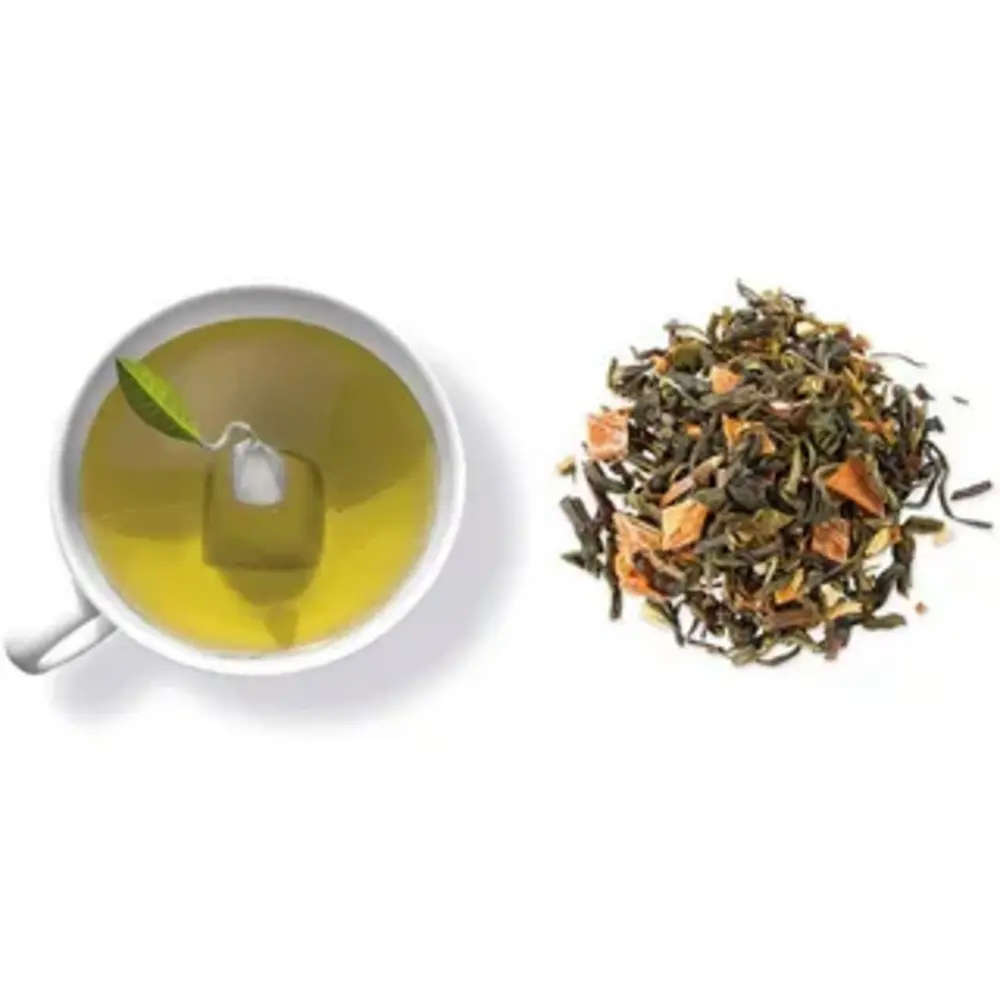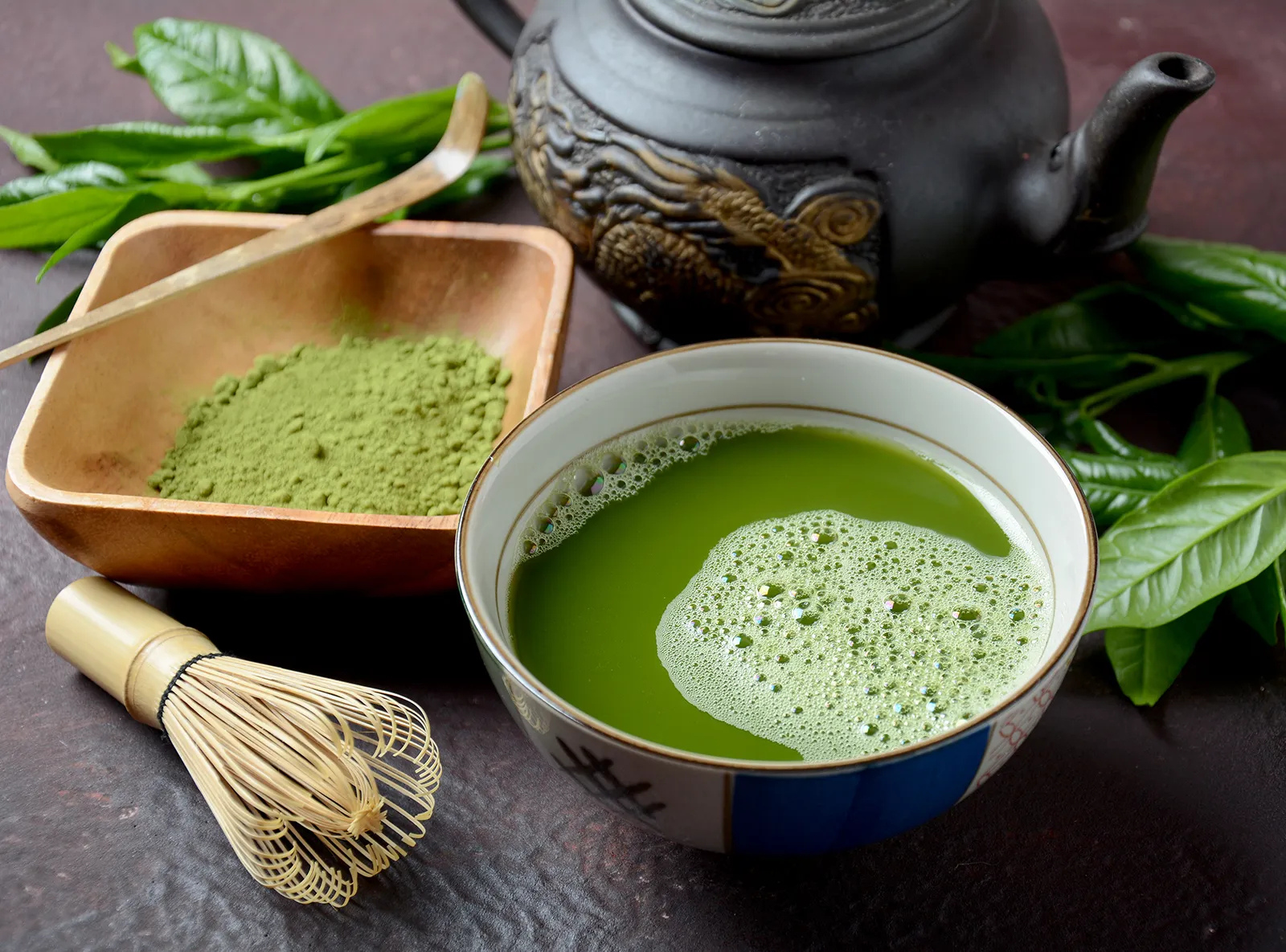Green tea with raspberry benefits include fat burning, digestion support, and radiant skin a tasty wellness boost.
Introduction
If you’re looking for a tasty and health-fuelling beverage, the idea of enjoying green tea with raspberry benefits is highly appealing. By combining the well-researched base of green tea with the vibrant flavour and nutrients of raspberries, you get a drink that tastes good and supports wellness. In this article, you will learn exactly what makes a raspberry green tea blend special, explore the key nutrients behind its benefits, and understand how to brew it for optimal results—and safely include it in your daily routine.
What Is Green Tea with Raspberry?
At its simplest, a green tea with raspberry blend brings together steamed or lightly oxidised tea leaves from the plant Camellia sinensis (that’s the green tea part) and fresh or natural raspberry flavouring or raspberries (whole fruit or extracts). The result is a refreshing beverage often marketed for wellness, combining the mild grassy-sweet taste of green tea with the tart-sweet notes of raspberries. Many herbal and fruit-tea producers describe this as a “fruit and green tea” hybrid that gives both flavour and function. When we talk about green tea with raspberry benefits, we’re addressing not only the flavour but the synergy of tea-derived compounds and raspberry phytonutrients working together.

Key Nutrients and Bioactive Compounds
| Component | Source | Key Nutrients / Compounds | Primary Benefits |
|---|---|---|---|
| Green Tea | Camellia sinensis leaves | Polyphenols (Catechins, especially EGCG – Epigallocatechin Gallate) | Strong antioxidant effect, supports metabolism and cell protection |
| Raspberry | Rubus idaeus fruit | Anthocyanins, Ellagic acid, Ellagitannins, Vitamin C, Fiber | Boosts antioxidant capacity, supports skin, immunity, and gut health |
| Combined Blend | Raspberry + Green Tea | Mix of catechins + anthocyanins + natural fruit nutrients | Creates a multi-layered antioxidant drink promoting wellness, metabolism, and detox |

Health Benefit 1 – Antioxidant & Cellular Protection
One of the core green tea with raspberry benefits lies in its potential to support antioxidant defence and reduce oxidative stress. The catechins in green tea—especially EGCG—help neutralise free radicals and may protect cellular structures from damage. Meanwhile the compounds found in raspberries (e.g., anthocyanins, ellagic acid) contribute to this protective effect by adding extra polyphenol support. Together, a raspberry green tea blend offers a more robust antioxidant profile than green tea alone, making it an excellent choice for everyday wellness and cellular health.
Health Benefit Metabolism, Weight Management & Fat Burn
Another key area where green tea with raspberry benefits shine is metabolism and weight support. Research indicates that green tea can help improve fat-burning and metabolic rate when paired with activity. The raspberry addition, while less studied for direct fat-burning, supports a flavourful alternative that encourages regular drinking rather than sugar-laden beverages. Many wellness-focused teas emphasise “metabolism boosting tea” blends that combine green tea with fruit flavours like raspberry for better adherence. By choosing a raspberry green tea blend, you’re leveraging two benefits: the inherent metabolism-support of green tea plus a tasty flavour that makes routine consumption more likely.

Health Benefit Brain Health, Mood & Cognitive Support
The third major highlight in the list of green tea with raspberry benefits is brain health, mood and cognition. Green tea contains caffeine and the amino acid L-theanine, which together may support alertness, focus, and calm mental clarity. Raspberries, with their anti-inflammatory phytonutrients, may further protect cognitive tissue from oxidative stress and inflammation. While less large-scale human research exists for raspberry additions, the synergy of a raspberry green tea blend offers an appealing, flavourful way to support cognitive function and mood as part of a broader lifestyle.

Health Benefit Heart & Circulatory Health
Lastly, among the noted green tea with raspberry benefits is support for heart and circulatory health. Regular green tea consumption has been linked with improved lipid profiles, modest reductions in blood pressure, and lower risk of cardiovascular issues. Raspberries also contain nutrients that support vascular health and help combat inflammation in blood vessels. By making a raspberry green tea blend part of your routine, you tap into a heart-health tea that is both enjoyable and functional.

How to Brew & Use Green Tea with Raspberry for Best Results
| Step / Tip | Guideline / Detail |
|---|---|
| 1. Water Temperature | Use water at 75–85 °C (170–190 °F) for optimal flavor and nutrient retention. |
| 2. Steeping Time | Steep for 1–3 minutes depending on how strong you like your blend. |
| 3. Serving Style | Can be served hot or iced — iced raspberry green tea makes a refreshing option. |
| 4. Daily Intake | Drink 1–3 cups per day as part of a balanced, healthy diet. |
| 5. Avoid Additives | Limit sugar, artificial sweeteners, or flavorings that reduce natural benefits. |
| 6. Consistency | Make it a daily wellness habit to experience long-term health effects. |
While the green tea with raspberry benefits are appealing, it’s important to consider safety and suitability. Because green tea contains caffeine and compounds that may reduce iron absorption, people with low iron or anaemia should be cautious.Additionally.

FAQ
Q: How many cups of raspberry green tea should I drink per day?
A: Most experts suggest 1-3 cups daily of a quality blend without heavy sweetener, to enjoy green tea with raspberry benefits while maintaining caffeine moderation.
Q: Is iced tea or hot tea better for the raspberry green tea blend?
A: Both can work well. Hot brewing releases the catechins and flavour; iced versions are equally valid for taste and function—and many raspberry green tea blends are designed for either.
Q: Will the raspberry flavour reduce the health benefits of green tea?
A: Not necessarily. If the blend retains quality green tea leaves and uses natural raspberry or extract (rather than heavy sweeteners), the synergistic benefits remain. Choose blends with minimal added sugar to preserve function.
Conclusion
Incorporating a green tea with raspberry benefits-oriented drink into your daily routine offers a smart way to enjoy antioxidant support, metabolism-boosting potential, cognitive and heart health benefits—all wrapped in a pleasant fruit-tea taste. Choose a high-quality raspberry green tea blend, brew it thoughtfully, and pair it with other healthy habits to get the most from this refreshing beverage.





